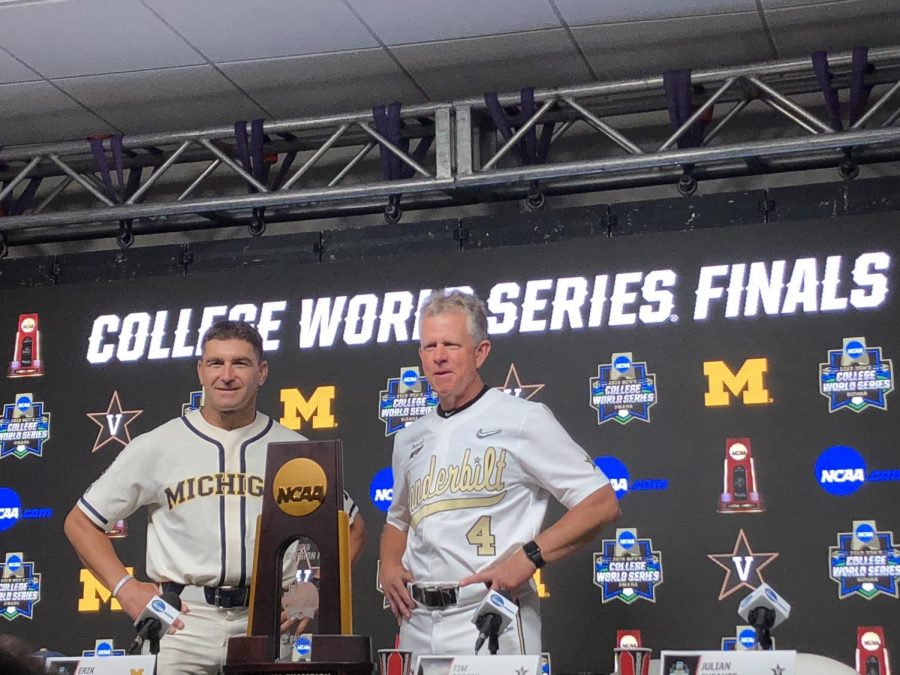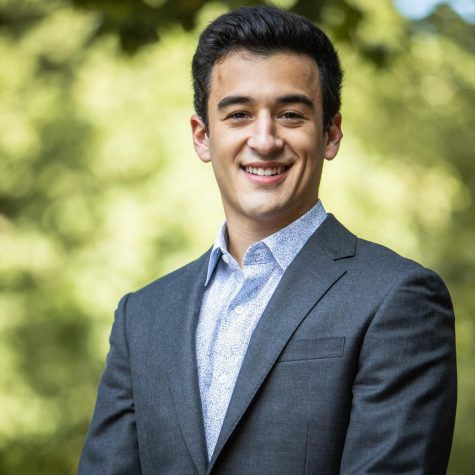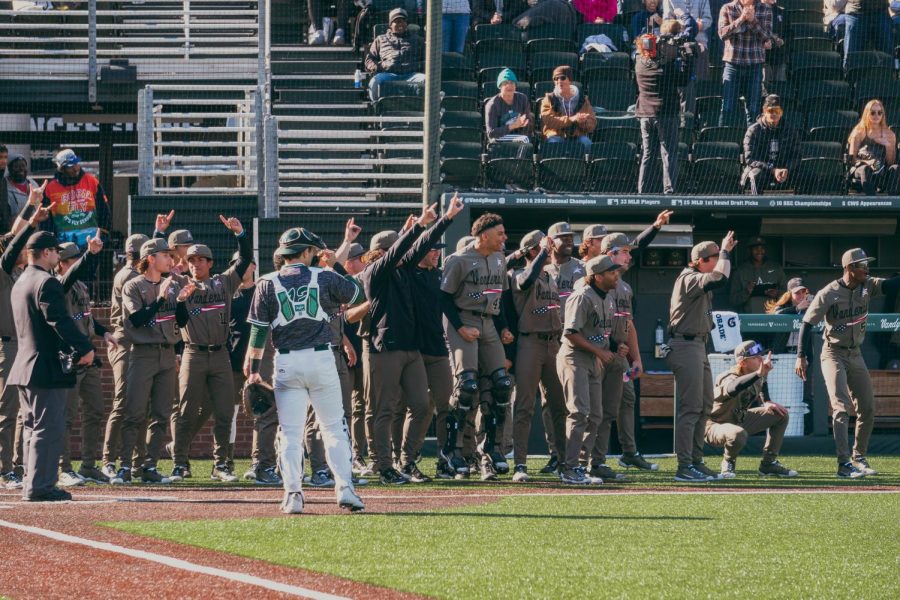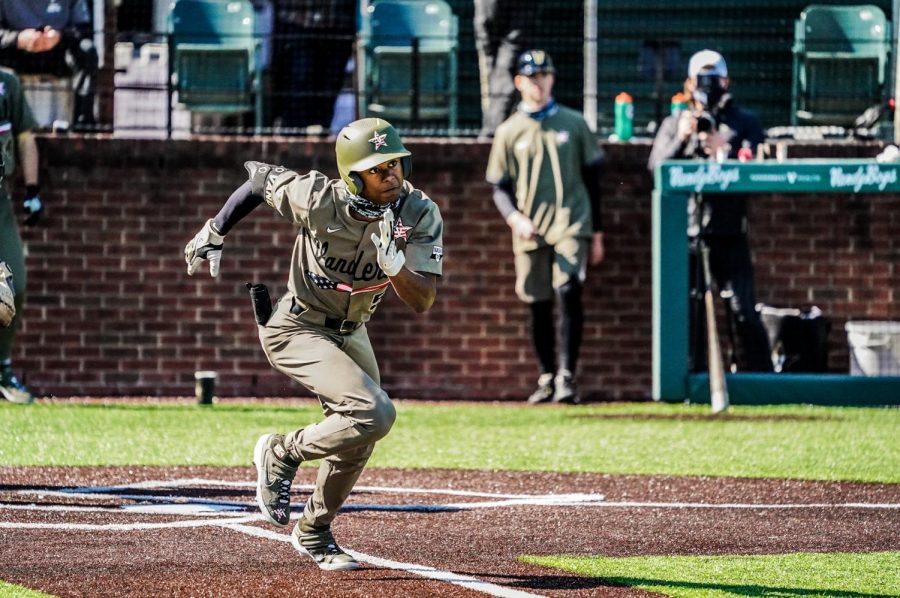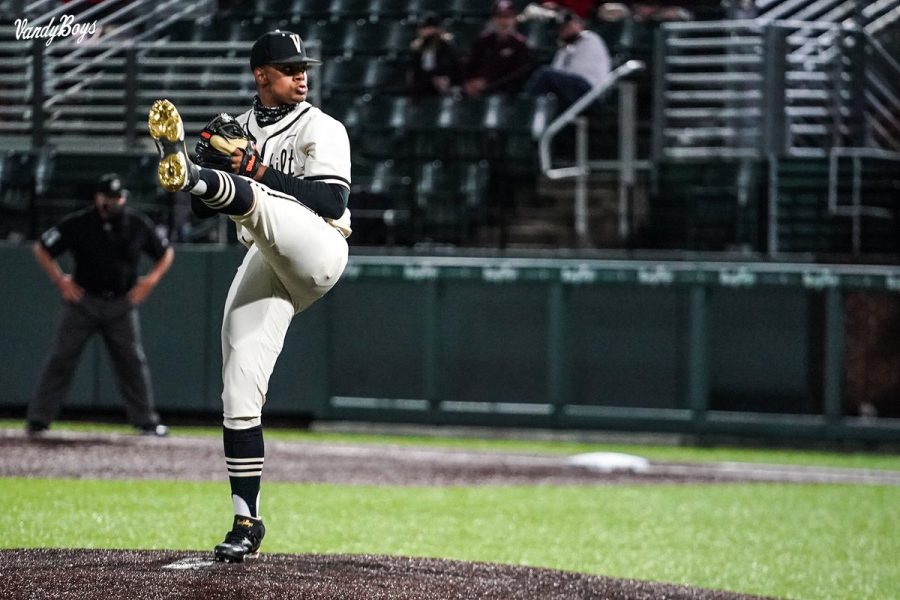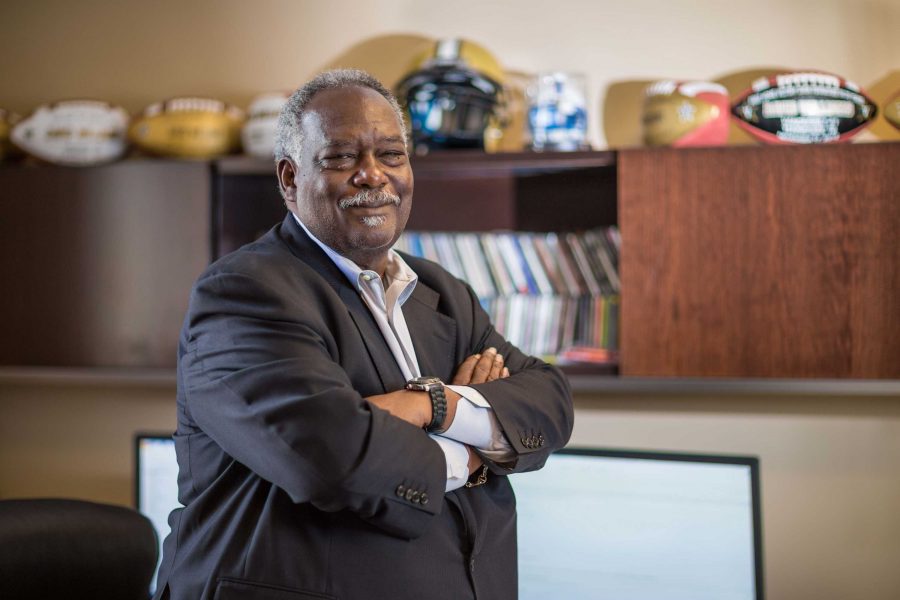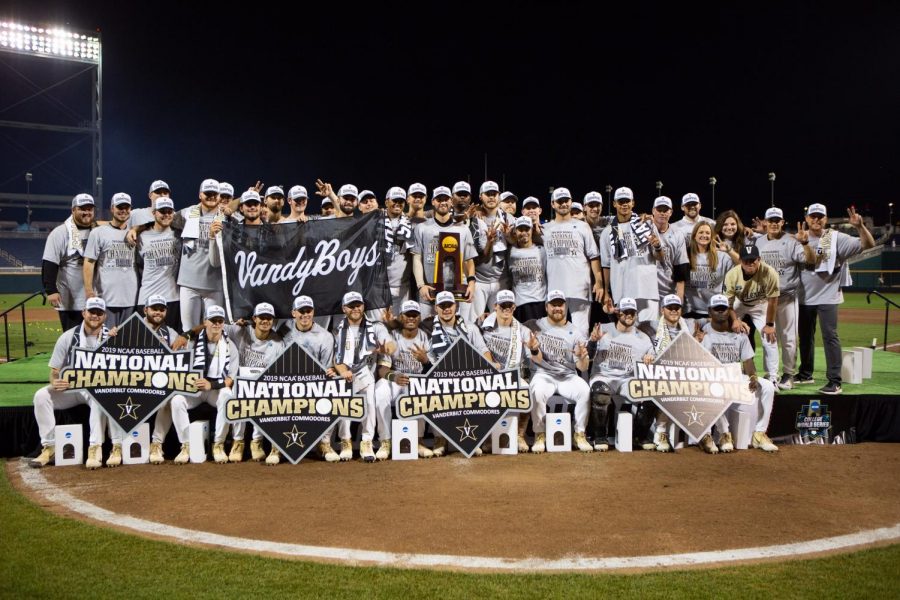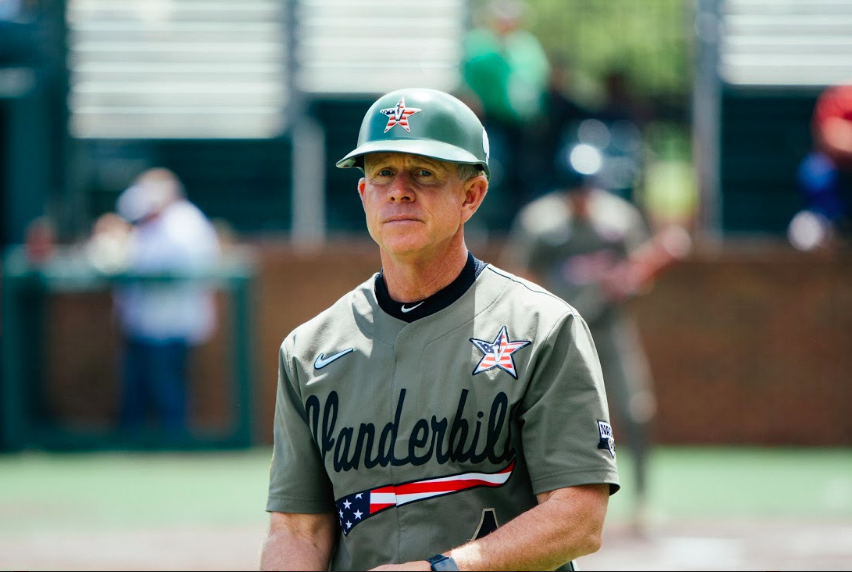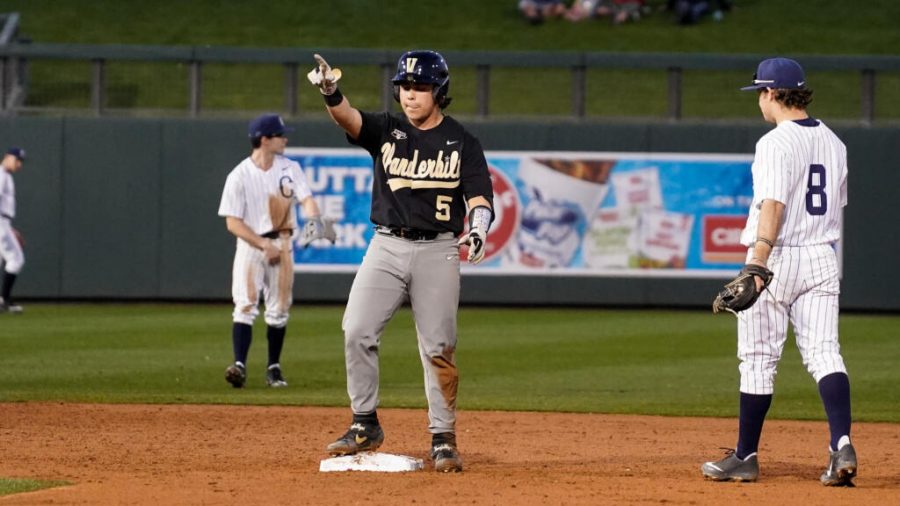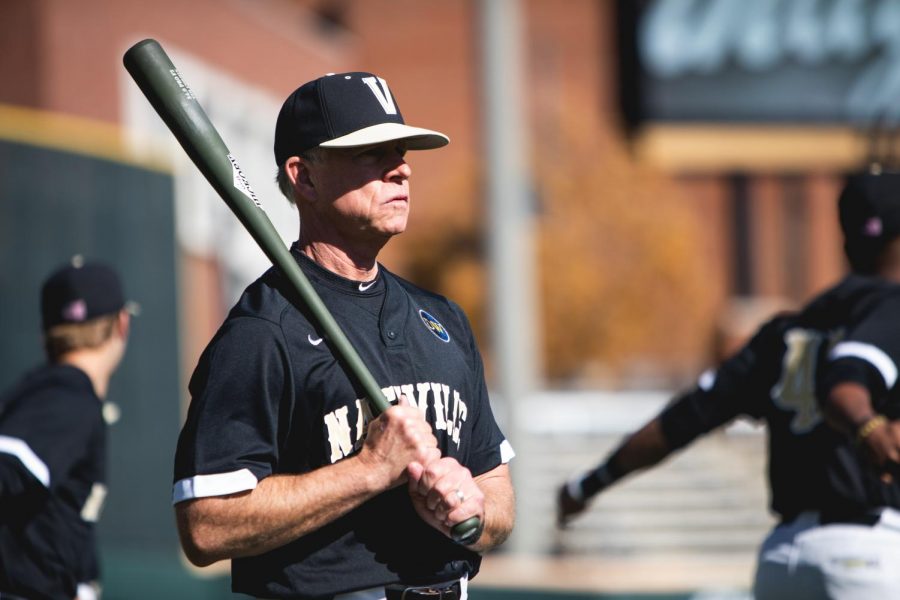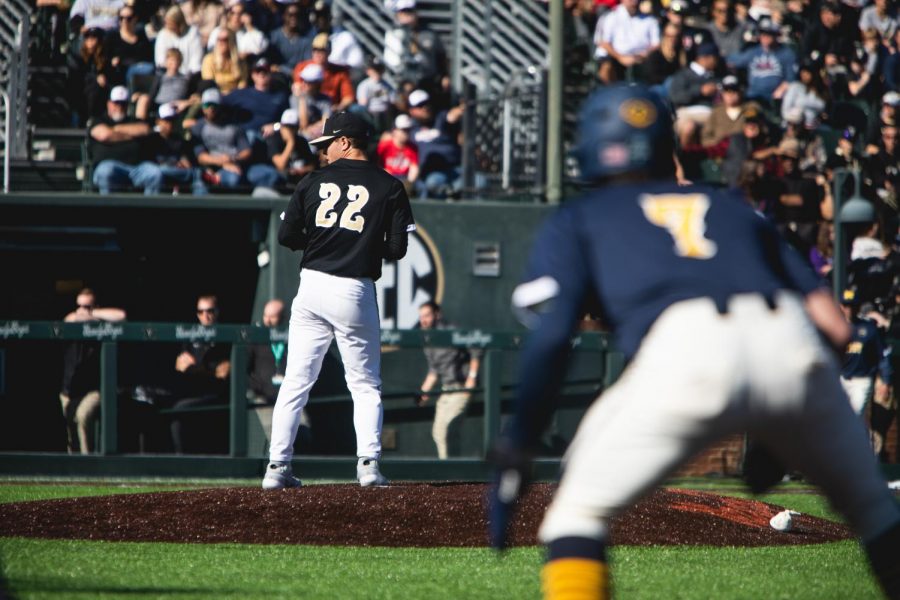On Sunday afternoon, Vanderbilt’s coach Tim Corbin stood just inches away from the 2019 National Championship Trophy for a photoshoot.
Two more wins would grant Corbin’s Commodores the privilege of taking that hardware back to Nashville. Surely, the trophy wouldn’t be lonely glimmering in a glass case next to the 2014 National Championship Trophy. The two would be displayed at the forefront of Hawkins Field’s entrance, portraying the prestige of Vanderbilt baseball: a program that has become a perennial contender at the highest level, breeding some of the best young talent this country has to offer.
This trophy would represent the players who sacrificed blood, sweat, and tears to make it to that point. Furthermore, it would represent the tireless work ethic of an impeccable coaching staff.
When Corbin and his assistant coach Erik Bakich took control of the program in 2003, they weren’t expecting to build one of the greatest college baseball programs in the country. They wouldn’t have imagined this moment, posing for pictures in front of a potential second national championship title roughly fifteen years later.
Well, maybe they did. Maybe they visualized the ensuing successes. If so, Corbin and Bakich certainly didn’t draw it up like this: standing toe to toe in front of the trophy as if they’re weighing-in for a marquee boxing match, one wearing black and gold, the other wearing maize and blue.
Erik Bakich helped Tim Corbin build this program from the ground-up. Now, Bakich is the head coach of Michigan.
Two best friends, two teams, and one trophy.
For the next few days, they will try to put their friendship behind.
Try to.
They say a picture is worth a thousand words, but Corbin needed just three to tell the story.
“This isn’t awkward,” Corbin remarked.
From Clemson to Nashville
This narrative began before the two even arrived on West End. In the hot sun of Clemson, South Carolina, Corbin and Bakich first met.
They weren’t wearing black and gold, nor were they wearing maize and blue. They were wearing orange and regalia as assistant coaches for Clemson University.
In Bakich’s case, an unpaid assistant coach.
Nonetheless, Bakich saw something special in Corbin. He saw a role model; a baseball coach whose work ethic was unparalleled.
“[Corbin is] a guy who drove all night to stop at the doorstep of an athletic director because he heard there was an opening in the ticket office. A guy who started a small school Presbyterian program by himself with a shovel and built a field and had to be the dorm director. He had to be his own assistant coach and head coach,” Bakich lamented. “Just to see the work ethic and the drive and the passion. He’d sleep in his car because he didn’t have a recruiting budget…I just felt like this was the guy I want to be around.”
Corbin saw the same in Bakich.
“The first time I met him was in the parking lot overlooking the baseball field at Clemson. He opened the trunk and pulled out this agility apparatus. It was an apparatus that he used not only to teach, but for himself… What I found within the first three, four, or five days of meeting [Bakich] is that he had an engine that was really different than most people you meet. An unbelievable passion for teaching and coaching and being around people.”
Bakich chuckled, claiming to have no recollection of such an “apparatus.”
As it turned out, Corbin and Bakich were a part of a legendary coaching staff assembled by a longtime ACC great in Jack Leggett. In 22 seasons as Clemson’s head coach, Leggett amassed 955 wins to just 480 losses, advancing to the College World Series six times on the way. Despite his eventual firing, Leggett receives praise for his impact on the Clemson program.
Many years later, it seems like Leggett he should receive even higher praise for the coaching staff he assembled. He discovered untapped head coaching potential in his trusty assistants, Bakich, Corbin, and (now Florida head coach) Kevin O’Sullivan. Bakich may not have won the title, but he’s playing for one now–the Michigan Wolverines have gone against all odds to clinch their finals appearance; they started postseason play as 200 to 1 odds to be crowned champions. Corbin moved on to coach the Commodores to a national championship in 2014, with another chance to do it this year. O’Sullivan now coaches the Florida Gators, a team he propelled to a national championship of their own in 2017.
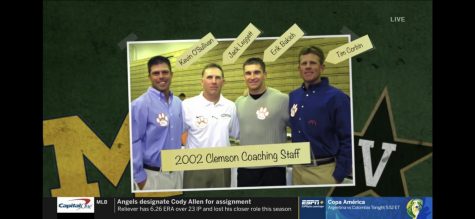
Just a year after they met at Clemson, Corbin was offered the head coaching job at Vanderbilt. When it came time to assemble a coaching staff of his own, the decision to hire Bakich was a no-brainer.
“Vanderbilt was not an attractive school to come to,” said Corbin. “There were not a lot of people going after the Vanderbilt position when I did. It was not a school that people saw as a desirable situation.”
Years later, it may be the most desirable position in college baseball. However, the man who holds that title–Tim Corbin–credits his partner for flipping the script.
“Vanderbilt’s not Vanderbilt without Erik Bakich…He built a recruiting base that still stands today. The David Prices, the Pedro Alvarez’s, The Dominic de la Osas, the David Macias’s. Those are because of him.”
Commodores favored against the Wolverines
Corbin is grateful for everything Bakich did to exceed expectations at Vanderbilt. Meanwhile, Bakich looks up to Corbin as a mentor, friend, and role model.
Regardless of the outcome, this series presents a terrific matchup: two very talented teams and two well-respected head coaches facing off at the pinnacle of the sport.
The projections are hardly a secret. Vanderbilt, the former no. 1 ranked team in the country, didn’t leave the top-ten all season. The Commodores entered the postseason as the no. 2 national seed, and are heavily favored against the Michigan Wolverines.
The only team ranked higher was UCLA.
Thanks to Bakich’s Wolverines, the UCLA Bruins were eliminated in shocking fashion–at their own home field, in super regional play. People counted out the underdogs against the no. 1 team in the country.
Ironically, the last time Michigan and Vanderbilt faced off on the diamond, the stakes were no different.
The year was 2007. The Commodores, much like UCLA, were first in the country. They, too needed to get past the Wolverines to advance to the Super Regionals. Only this time, Erik Bakich was the assistant coach for the highly favored Commodores.
This time, Bakich and Corbin were both on the wrong side of a drastic upset.
Corbin knows Bakich and his Wolverines. He knows not to count them out. At this point, the whole country knows not to count out one of the hottest teams in baseball. Michigan has caught fire at the right time, and they will provide an intriguing matchup for Vanderbilt.
The Commodores are 11-1 in 12 games against College World Series teams, amassing a .304 batting average. On the other hand, their pitching has posted a 3.28 ERA without much run support–in the past three games, the Commodores scored three, six, and three runs. Vanderbilt is in need of the merry-go-round offense they’ve had for most of the season. Drake Fellows will get the nod in game one, and his 3.97 ERA creates a clear-cut responsibility for the Vanderbilt lineup.
Michigan’s offense has been far from quiet as of late. They’re fresh off a 15-3 win over Texas Tech, during which they tied Florida’s 2015 record for most runs scored at TD Ameritrade Park. In the College World Series, Michigan’s first four hitters have been about as impactful as Vanderbilt’s, as they’ve secured the Wolverines a first inning lead in all three games. Their pitching is no less dominant — Tommy Henry will start the series for the Wolverines, coming off a three-hit, ten strikeout, complete game shutout.
The Michigan Wolverines are playing their best baseball of the season. Meanwhile, the Commodores are playing some of their best baseball in school history.
Within days, we’ll see if Tim Corbin can solidify his spot in history by dethroning his own protégé.

